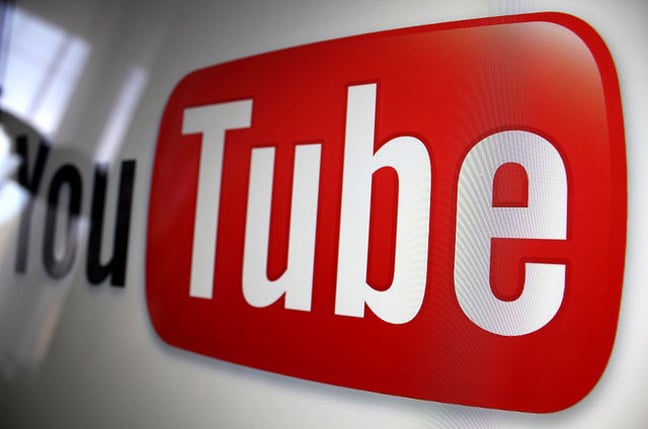Privacy advocate challenges YouTube’s ad blocking detection::Irish eyes may not be smiling
YT’s push into ad-blocker blocking did the same for me that Reddit’s API change did, that being it was enough of a push for me to stop using their platform. In Reddit’s case, I get my fix from Lemmy and in YT’s case, I use Freetube to watch videos. In both cases, I’m sure they’re not losing money in my absence but I do feel better not giving them the data that I used to.
Removed by mod
Louis Rossmann can go to fuck himself and his source available app that he keeps calling open source.
Newpipe existed long before Grayjay and will probably be there when grayjay dies since Newpipe’s license allows community forks. If the Newpipe team ceases development, others will take their place. If Rossmann ceases development, his app is left for dead
If only newpipe didn’t suck so hard though.
Users telling developers to fuck themselves is a irony lost in these threads. How many open source projects do you maintain?
Removed by mod
I hope this license is temporary because this license is non-free.
Removed by mod
Subject to the terms of this license, we grant you a non-transferable, non-exclusive, worldwide, royalty-free license to access and use the code solely for the purposes of review, compilation and non-commercial distribution.
note how this explicitly leaves out modification.
You may provide the code to anyone else and publish excerpts of it for the purposes of review, compilation and non-commercial distribution, provided that when you do so you make any recipient of the code aware of the terms of this license, they must agree to be bound by the terms of this license and you must attribute the code to the provider
once again, they exclude modification of the code.
no forks can be made because they aren’t allowed to modify the app in anyway.
Additionally, the termination clauses say that they can just terminate your rights to use the code if they feel like it, no other reason needed. This is a direct attack against open source.
Removed by mod
Source available is open source by definition. Get mad at other things, but that is absolutely a fair description
by definition?
the Free Software Foundation, the ones that started the whole idea of sharing code as a philosophy of software, do not consider source available as free software or “open source”.
It does not meet Eric S Raymond’s definition, the one who invented the term “open source”.
It does not meet the Open Source Initiative definition either.
Even Wikipedia gives the right definition of open source:
They grant the recipient the rights to use the software, examine the source code, modify it, and distribute the modifications.
So stop defending Rossmann and admit that the app is not open source.
I’ve got Grayjay on my phone but I very rarely watch YT on it so I’ve not really used it yet. Almost 100% of my watching happens on the PC and I’ve absolutely fallen in love with Freetube. No shorts spam, sponsorblock, more useful features on the player, it’s pretty fantastic.
My computer, my freedom!
I can do whatever I want.
So can the web server youre trying to access lol
the adblock detection is happening at the client side with JavaScript code executed in my browser. As the original comment said: my device, my freedom. I’ll be blocking any JavaScript I don’t like and nobody can stop me from doing that.
the web server? absolutely!
the arbitrary code they send to my browser? I must be able to choose what to execute in my device.
and people wonder why everything is entirely moving to subscriptions.
You are able to choose because they let you. You don’t think they know that? They own their own browser for god sakes. They could turn every adblock ineffective and not care for mouth breathers like you claiming victory by using applications and adblock lists someone else make, who would shit themselves if they stopped being maintained for a few days.
Don’t make yourself feel like you beat the Big Tech. It’s anything but…
Enjoy yourself feeling like a h4x0r though.
Do you think it’s the fault of people with ad-blockers that everything is transitioning to subscription services? Or do you think maybe it has something to do with the exponentially larger profit to be made with the subscription model?
It really looks like you’re just angry at this one person, and you kinda shaped your argument to be the meanest thing possible for them. But it left you looking like a shill for google who can’t decide which fight they wanna have.
Good luck and god speed.
NoScript makes it fairly easy to pick and choose what scripts to run, although it’d probably not be granular enough for YouTube’s adblockblock.
Media hosting is not “arbitrary code” and costs money. Just saying don’t be surprised when a site prevents you from using a service without paying for it in some way.
they detect adblock by executing proprietary JavaScript code in my browser, using my CPU cycles. I paid for that CPU and I can choose what code gets executed and what not.
That JavaScript code is also privacy invasive and I’m not letting a mega corporation recollect information about myself. So yeah, I’ll block whatever I want from my browser. And if that makes Google loose money, they are more than welcomed to look for a business model other than advertising.
That JavaScript code is also privacy invasive
As a web developer seeing an end user say this is hilarious. Hate to break it you but there are much better ways to track you.
If you’re that paranoid just use a VPN and never enter personal information on the internet.
I prefer to use Tor, but whatever makes you happy.
Client side code isn’t the only way to track someone, but it’s one of the options. And fingerprinting browsers using JavaScript is an extended practice.
Anyway, you’re missing my point. My browser, my rules. I’ll just block any script that annoys me.
Hate to break it you but there are much better ways to track you.
—What’s that? Oh. The producers are telling me they use those methods too.
Serious question: YouTube is a business and owned by a public corporation and not a FOSS so they can dictate how they want to run their platform. They want to run ads and blacklist ad blockers running on their platform. They have created a premium subscription for those who don’t want ads. I understand the public outrage, of course. My question is why can’t they do what they want with their own platform? I guess I’m finding it hard to see a different perspective. FYI, I’m in the process of distancing myself from Google services as much as possible.
People should always be able to control what their hardware does. Google go beyond selling goods/services when they control how using the internet works with changes to the web browser (that most people use). Google could just paywall all their content but they want to dictate their cake and eat it.
Because corporations and businesses are still bound to the law of the country they offer their services in.
Just because some hillbilly bar in Kansas allows minors to smoke and drink doesn’t mean that’s legal because it’s their place.
When I visit the YouTube site, all that happens is their server sends data to my browser that it requested. What I/my browser do with that data (especially how and whether to display parts of the site) is up to me.
edit: Of course, they can try to forbid this via ToS but afaik nothing more than that.
I use ad blocker, and I think it’s fine if YouTube wants to try to stop it.
Buteventually someone will find a workaround for their efforts to stop it.
It’s a never ending game of cat and mouse.
Personally I wouldn’t mind paying for YouTube premium. As a matter of fact I did in the past. But it’s priced at least twice as high as I’m willing to pay. Perhaps if they had full premium with YouTube music at the current too high price, and then a “premium lite” that was simply no ads and but no YouTube music either at half or less the full price. Personally I just don’t want ads, I don’t want to over pay for a music service I dont want, just because I don’t want ads in the unrelated video portion of youtube.
Currently I feel like they are bullying me into buying a service I don’t want, by interfering with a service that I do want. Which is honestly what I suspect is at the root of this current push against ad blockers in the first place. It’s not about the video service in any meaningful way, I suspect they are trying to leverage their video dominance to bolster their music subscribership. This seems antisocial enough for me to have no ethical concerns about attempting to circumvent their ads.
I don’t know, seems kind of trivial to say that you’re tracking if they’re watching videos or not rather than your tracking if they’re running a piece of software. I wonder if in the end game they don’t just start wrapping their videos in DRM.
Tracking has the ability to follow someone to other sites.
They’ll do what twitch did and embed the ads into the video stream so you can’t block them without blocking the video itself
This is the best summary I could come up with:
Interview Last week, privacy advocate (and very occasional Reg columnist) Alexander Hanff filed a complaint with the Irish Data Protection Commission (DPC) decrying YouTube’s deployment of JavaScript code to detect the use of ad blocking extensions by website visitors.
YouTube’s open hostility to ad blockers coincides with the recent trial deployment of a popup notice presented to web users who visit the site with an ad-blocking extension in their browser – messaging tested on a limited audience at least as far back as May.
“In early 2016 I wrote to the European Commission requesting a formal legal clarification over the application of Article 5(3) of the ePrivacy Directive (2002/58/EC) and whether or not consent would be required for all access to or storage of information on an end user’s device which was not strictly necessary,” Hanff told The Register.
"Specifically whether the deployment of scripts or other technologies to detect an ad blocker would require consent (as it is not strictly necessary for the provision of the requested service and is purely for the interests of the publisher).
Hanff disagrees, and maintains that "The Commission and the legislators have been very clear that any access to a user’s terminal equipment which is not strictly necessary for the provision of a requested service, requires consent.
“This is also bound by CJEU Case C-673/17 (Planet49) from October 2019 which all Member States are legally obligated to comply with, under the [Treaty on the Functioning of the European Union] – there is no room for deviation on this issue,” he elaborated.
The original article contains 1,030 words, the summary contains 258 words. Saved 75%. I’m a bot and I’m open source!
It was high time.










